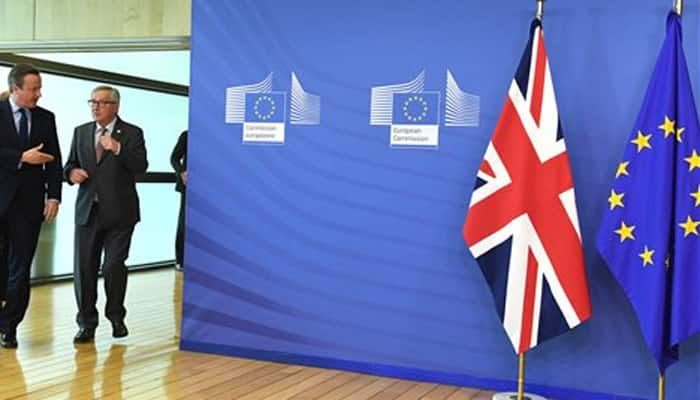London: More than two months after the Brexit referendum, Britain`s economy has defied the direst predictions of what could happen if voters decided to leave the European Union.
Consumers have largely taken the surprise decision to quit the EU in their stride and exporters have been helped by a fall in the value of the pound.
But the economy is still on course for a sharp slowdown in the rest of this year and only a small recovery in 2017 when Prime Minister Theresa May is likely to kick off talks with the EU that will shape Britain`s trade and investment future.
Below is a summary of various measures of the economy`s performance since the referendum on June 23:
See for a related story.
CONSUMPTION
Shoppers were unfazed by the shock result of the Brexit vote in July when their spending jumped by much more than expected, according to official data.
Signals have been mixed since then. Employers group CBI said retailers reported the strongest sales in six months during the early part of August. But a later survey by an industry association showed sales were down, although it said the fall was more a reflection of summer distractions from shopping than a delayed reaction to the Brexit vote.
Major retailers Next and John Lewis have said they have been unaffected so far by the referendum result.
But consumers seem to be reluctant to make major outlays. New car registrations were flat in July and rose in August, but the increase was due to purchases by companies and rental firms rather than individuals.
House prices rose more strongly than expected in August but mortgage lender Nationwide said the increase was largely driven by a shortage of homes on the market. The Royal Institution of Chartered Surveyors said the market weakened after the EU vote.
There have been signs consumers are curbing their enthusiasm for borrowing, which rose at its slowest pace in nearly a year in July while new mortgage approvals were the lowest since January 2015, according to the Bank of England.
The BoE more than halved its forecast for household spending growth over the next two years as it cut interest rates and announced more stimulus measures on Aug. 4.
British consumer morale saw its sharpest drop in more than 26 years in July before partially recovering in August, according to polling firm GfK, which said consumers were in wait-and-see mode about the EU exit process.
INDUSTRY
The clearest sign so far that Britain`s economy has bounced back from the initial shock of June`s vote came from surveys of the services, manufacturing and construction sectors.
The purchasing managers` indexes plunged in July but jumped in August, helped by the fall in sterling and the continued strength of consumer demand at home.
However, financial data firm Markit said its surveys suggested the economy would slow to a crawl in the three months to September, backing up the BoE`s view that another interest rate cut will probably be needed at the end of the year.
Business investment is a key indicator of how firms respond to the uncertainty and a slowdown would be bad news for the economy`s longer-term prospects.
Investment plans among business and professional services firms were at their leanest in more than four years in the three months to August, the CBI said. EEF, a manufacturers` group, said investment plans for the next 12 months were their lowest since late 2009.
The first official figures on industrial output since the financial crisis are due on Wednesday.
JOBS
For now, official figures have shown little sign of a Brexit hit in the labour market, with the number of people claiming unemployment benefit in Britain unexpectedly falling in July and only a small fall in the number of job vacancies.
The PMI surveys for August showed small growth in employment but hiring remained much weaker than it was in 2015.
A survey of recruiters published a month ago showed the number of permanent hirings through agencies falling at its sharpest pace in over seven years.
Lloyds Banking Group said in July it would axe a further 3,000 jobs and close an additional 200 branches to cushion against a more testing economic environment caused by Britain`s vote to quit the EU.
By contrast, online retailer Amazon said last week it would create 1,500 new jobs in 2017 in Britain.A slower economy could cap wage growth, which together with higher inflation, would eat into consumers` spending power.
INFLATION
Price pressures in factories - which feed through into consumer prices - jumped in July, reflecting the post-Brexit slump in the pound.
Import prices rose at their fastest rate since late 2011 and overall input prices paid by manufacturers saw their biggest annual rise in three years.
The PMI surveys also showed the impact of the weak pound with the strongest upward pressure on prices in over two years.
The BoE has raised its forecasts for the consumer price index for 2018 and 2019 further above its 2 percent target, which threatens to eat into the spending power of households.
The CPI, which has been below the BoE`s 2 percent target for two-and-a-half years, edged up to 0.6 percent in July.
















